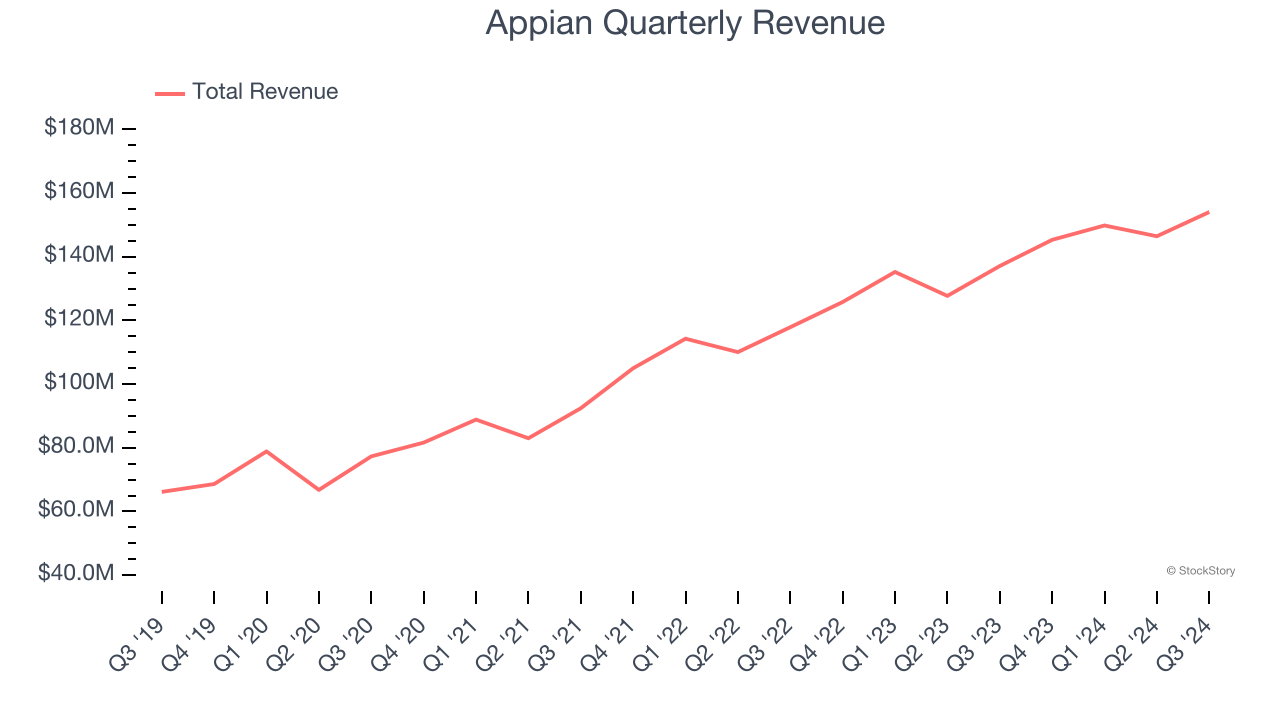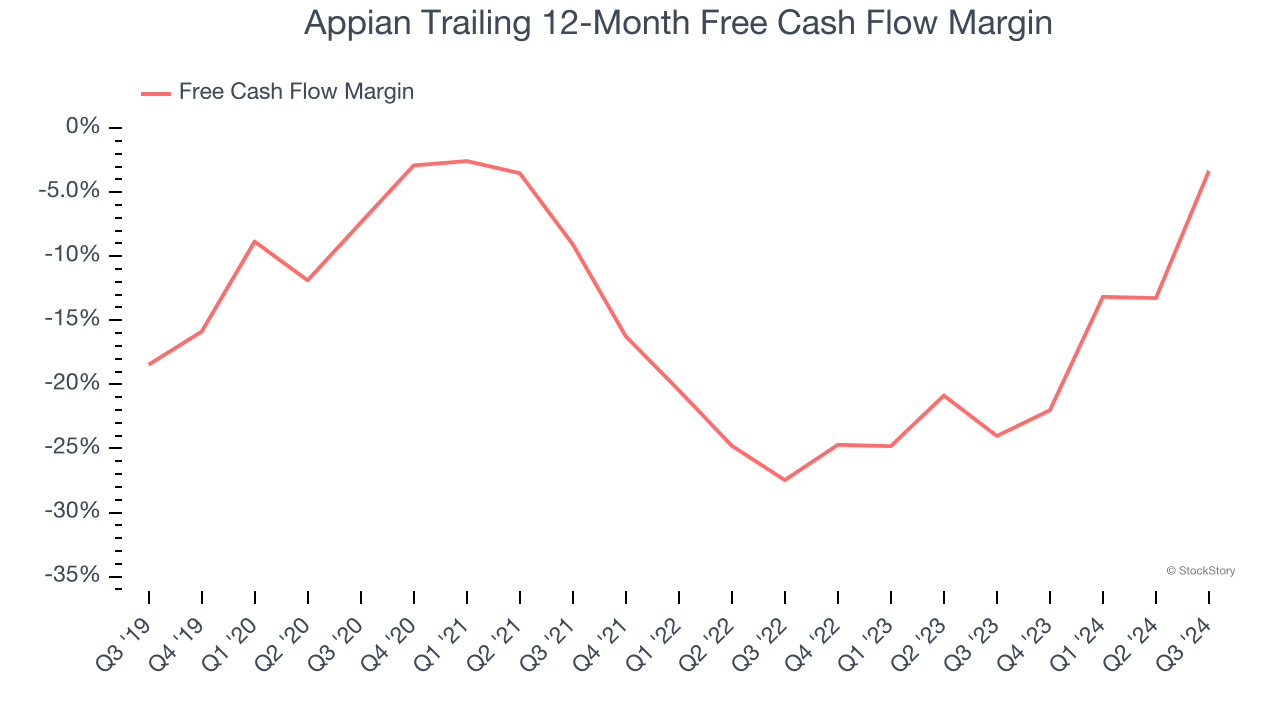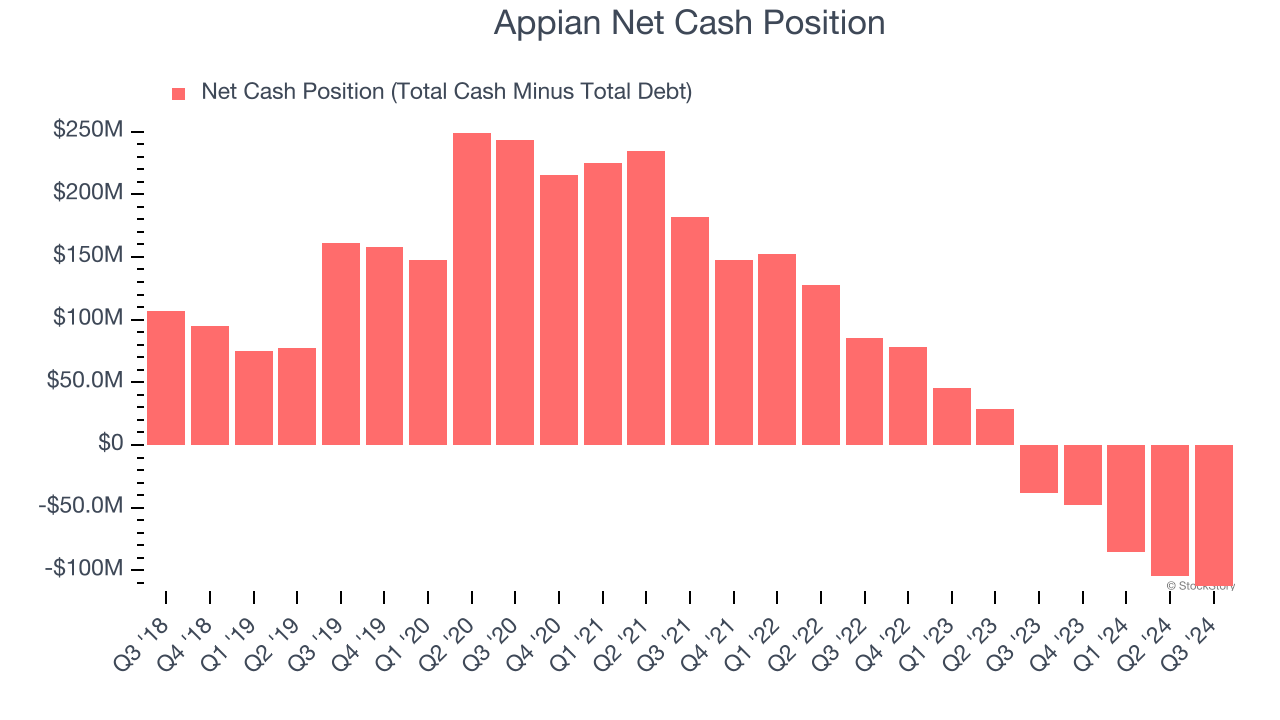
Over the past six months, Appian’s stock price fell to $32.70. Shareholders have lost 5.2% of their capital, which is disappointing considering the S&P 500 has climbed by 4.1%. This may have investors wondering how to approach the situation.
Is now the time to buy Appian, or should you be careful about including it in your portfolio? See what our analysts have to say in our full research report, it’s free.
Even with the cheaper entry price, we're swiping left on Appian for now. Here are three reasons why you should be careful with APPN and a stock we'd rather own.
Why Is Appian Not Exciting?
Founded by Matt Calkins and his three friends out of an apartment in Northern Virginia, Appian (NASDAQ: APPN) sells a software platform that lets its users build applications without using much code, allowing them to create new software more quickly.
1. Long-Term Revenue Growth Disappoints
Examining a company’s long-term performance can provide clues about its quality. Any business can put up a good quarter or two, but the best consistently grow over the long haul. Over the last three years, Appian grew its sales at a 19.9% compounded annual growth rate. Although this growth is solid on an absolute basis, it fell slightly short of our benchmark for the software sector. 
2. Cash Burn Ignites Concerns
If you’ve followed StockStory for a while, you know we emphasize free cash flow. Why, you ask? We believe that in the end, cash is king, and you can’t use accounting profits to pay the bills.
Appian’s demanding reinvestments have consumed many resources over the last year, contributing to an average free cash flow margin of negative 3.3%. This means it lit $3.34 of cash on fire for every $100 in revenue.

3. Short Cash Runway Exposes Shareholders to Potential Dilution
As long-term investors, the risk we care about most is the permanent loss of capital, which can happen when a company goes bankrupt or raises money from a disadvantaged position. This is separate from short-term stock price volatility, something we are much less bothered by.
Appian burned through $19.88 million of cash over the last year, and its $252.8 million of debt exceeds the $140 million of cash on its balance sheet. This is a deal breaker for us because indebted loss-making companies spell trouble.

Unless the Appian’s fundamentals change quickly, it might find itself in a position where it must raise capital from investors to continue operating. Whether that would be favorable is unclear because dilution is a headwind for shareholder returns.
We remain cautious of Appian until it generates consistent free cash flow or any of its announced financing plans materialize on its balance sheet.
Final Judgment
Appian isn’t a terrible business, but it doesn’t pass our quality test. Following the recent decline, the stock trades at 3.6× forward price-to-sales (or $32.70 per share). While this valuation is reasonable, we don’t really see a big opportunity at the moment. We're fairly confident there are better investments elsewhere. We’d suggest looking at Google, whose cloud computing and YouTube divisions are firing on all cylinders.
Stocks We Would Buy Instead of Appian
The Trump trade may have passed, but rates are still dropping and inflation is still cooling. Opportunities are ripe for those ready to act - and we’re here to help you pick them.
Get started by checking out our Top 6 Stocks for this week. This is a curated list of our High Quality stocks that have generated a market-beating return of 175% over the last five years.
Stocks that made our list in 2019 include now familiar names such as Nvidia (+2,691% between September 2019 and September 2024) as well as under-the-radar businesses like Comfort Systems (+783% five-year return). Find your next big winner with StockStory today for free.





